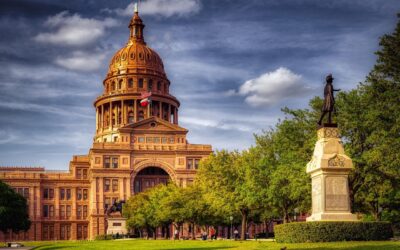Issue
Standards for Explicit Sexual Content in Schools
KEY POINTS
- School Boards are legally permitted to create policy setting standards for preventing age-inappropriate sexually explicit content in their curriculum and library.
- The standard ought not be: “As long as this book doesn’t land us in jail for giving it to a minor, the sexually explicit content is welcome in our curriculum or the school library.”
- Written policy protects students, parents, employees, and the school
and ensures better educational content will fill the finite space in curriculum and in libraries. - Schools should prioritize material that provides rich educational value over material that may provide similar value but also has age-inappropriate sexually explicit content.
- Age-Appropriate policies are not directed at viewpoint and are not banning the book from student possession. They are exercising the schools prerogative to determine what to include in its own library and curriculum.
Standards for Sexually Explicit Content in Schools
Schools must engage in line-drawing for age appropriateness of sexually explicit content in their library and curriculum. Criminal laws are one required line prohibiting schools from giving materials to minors in curriculum or library that a court deems pornographic or obscene. But what about sexually explicit content that does not rise to the extremely high bar of criminal law?
School boards are legally permitted to articulate standards that go beyond “would we land in jail for giving this book to a minor?” to prevent other age-inappropriate sexually explicit content in their curriculum and school library. Unfortunately, many schools have no policy standards for sexually explicit material beyond criminal law.
Schools with written age-appropriate standards for sexually explicit materials that differ for elementary, middle, and high schools protect students and ensures better educational content will fill the finite space in curriculum and in libraries.
But such written policies also protect the school’s staff and district from costly litigation. Even without written policy, a school librarian, principal, or school board is permitted to remove a particular title they deem age-inappropriate sexually explicit material. But with written policy standards, the school is less susceptible to baseless allegations that the title was removed for an impermissible viewpoint discriminatory reason.
School employees still have wide discretion to select and purchase books that comport with the age-appropriate standards in written policy set by the school board, and from that universe of materials, parents then have ultimate authority to make additional age-appropriate determinations for their own child and should have authority to restrict certain titles for their own child.
Individuals who desire to see sexually explicit materials in the hands of minors sometimes argue that such policies are “book bans.” Attempts at labeling common-sense school standards as “book bans” have been rejected by courts, most recently in August of 2022 by a federal court in Missouri.
A parent, for example, who wants to buy sexually explicit books for their own child to read are not prevented from doing so by such school policies. School policies setting forth its own age-appropriate standards for sexually explicit content in its own curriculum and school library do not even prohibit a student from bringing their own book to school or from reading it in an appropriate time, such as study hall. But school districts do not have to put such explicit books in their own curriculum or in the school library, and such a decision by the school is not a ban on books.
Such policies treat inappropriate sexually explicit content the same regardless of whether the sexually explicit depictions or descriptions happen to be between straight, gay, or even a lone person. As such the argument made by those who desire to see sexually explicit materials in the hands of minors, that these policies are directed at LGBT people, is false.
Too many schools lack baseline standards regarding sexually explicit content in school libraries. Schools ought to spend the finite time in the day on academic excellence, and sexually explicit content detracts from that. Explicit sexual depictions and descriptions may sell, but refusal to purchase it is no ban. Districts can decide not to buy and stock sexually explicit content. If you are a school board member who desires to implement such a policy, we are glad to assist you.

Related Articles
We’re Always Watching: Your Voice Matters in Harrisburg
We’ve been tracking a host of bills that have significant implications for families across our Commonwealth. Here’s a look at what we’re keeping an eye on right now, and why your attention and engagement are more critical than ever.
Texas Win Clears Path for Pennsylvania to Protect Kids Online
Last week, the U.S. Supreme Court delivered an important ruling in Free Speech Coalition v. Paxton, upholding Texas’ age-verification law for online pornography. This decision is a huge win for families across the nation, and for our ongoing efforts right here in...
Celebrating Life: Pro-Life Leaders, Pregnancy Centers, and Students Gather at Capitol for “Life Month”
Pro-life leaders, student advocates, and pregnancy resource center staff came together today at the Pennsylvania State Capitol to commemorate June as Life Month, recognizing the third anniversary of the U.S. Supreme Court’s historic Dobbs decision overturning Roe v....
Lancaster Teen and Mother Charged—But the Real Crime Is the Abortion Industry’s Deception
A heartbreaking update has emerged in the tragic Lancaster County case we first reported—a teen and her mother have now been charged with concealing the death of a child after the teen took abortion pills at home, gave birth alone, and buried the baby’s body in their...
Harmful Uniform Parentage Act (HB 350) Places the Desires of Adults Over Children’s Well-being
UPDATE – June 16, 2025: HB 350 has now passed Second Consideration on the House floor, a critical step that allowed for proposed amendments but saw no meaningful changes to address the bill’s most dangerous provisions. A final vote on Third Consideration is expected...
Fatherhood Matters: Why Dads Are Essential for Families—and for Our Nation
Dads Are Essential for Families
Embracing Authentic Masculinity: A Call for Meekness in a Crisis of Manhood
At the Pennsylvania Family Institute, we are committed to fostering strong families and communities rooted in timeless values. This is why we’re excited to share insights from an article by Andrew Warthen, a former intern, graduate of Franciscan University of...
“Love is Love”?
You've seen and heard it everywhere—from bumper stickers, lawn signs and billboards to the mouths of celebrities and politicians: "Love is love." It sounds nice. Caring. Non-confrontational. But when you really stop and think about it, this phrase does a lot more than...










